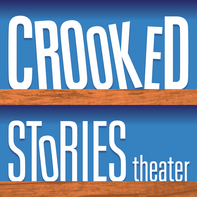Boulangerie (pdf format) by Jose Arana
An abused girl in a French village meets the most unlikeliest hero: a baker.
Babette’s Feast, Big Night, Rataouille, Chocolat, Heartburn.
What do all of these classic movies movies have in common? Food. And their accompanying themes of the power of food – food as seduction, as self indulgence, and that eternal struggle between self denial and sensual gratification. Food is a powerful and primary ingredient in all of our lives to comfort and sustain, but mostly to nourish.
Writer Jose Arana introduces us to Richard Dubois, a man in his late 50s, who knows all about food, specifically that staple – bread. Problem is, he appears to be missing some of that all important nourishment. When we first meet Richard he’s kneading a ball of dough as if his life depends on it. He’s a man in the zone, and, it appears, a man in a considerable amount of emotional pain – working that dough as if to exorcise his demons. What these demons are at this point, we don’t know, but how fitting it is that the French word for ‘bread’ is in fact ‘pain’, and it’s writ large on Richard’s face.
Set in a small Parisian village in a quaint old style bakery – Jose sets the scene so you can almost taste the fluffy white rolls, the sweet brioche, and the buttery croissants – feel the warmth emanating in the room, and smell the freshly baked bread as it comes out of the oven.
But outside a storm’s raging, torrential rain, lightning, thunder – it’s a dirty night and commuters are scurrying home to the warmth and safe haven of their homes and loved ones. Not so, eight year old Madeleine, who suddenly appears on Richard’s doorstep. At first glance Richard fails to recognize her – her face concealed under a hooded rain-coat and looking bedraggled from the wild weather – it takes him a moment to realize she’s a local girl and he quickly invites her inside to get warm and take shelter.
Something’s up, but we don’t know what, and despite the little girl’s protests Richard insists on telephoning Madeleine’s mother to let her know she’s all right. Though he commiserates with Madeleine and is aware of her mother’s reputation for strictness, he is quick to remind her that respecting one’s elders is very important.
But when Madeleine’s mother doesn’t answer the phone… Richard is not happy and the tone shifts.
It’s one clever little girl however who changes the subject and asks Richard about his passion for baking and when Madeleine expresses her interest in taking up the pursuit a bond develops between the two, and not just through a love of bread-making. It’s easy to see Madeleine craves a father figure, also easy to see Richard has a big gap to fill in his life.
Jose Arana weaves a deceptively simple tale With Boulangerie – a balanced and layered dish of bittersweet ingredients with a dash of that secret ingredient – mystery. Through flashback we discover both Richard and Madeleine harbor secrets and that each bears familiar scars, but that in each other they might just find a kindred spirit.
Boulangerie is a gentle and quiet narrative, its subtext and subtle impact felt not only through what is said in dialogue but equally through what is left unsaid. This is a story with much more going on than first meets the eye.
As with all good mysteries, some crucial questions remain unanswered:
What’s an eight year old girl doing out alone and in the middle of a storm? And, what of the suspicious bruises on her arm? Where is Madeleine’s mother, and why doesn’t she answer the phone? Finally, what is the significance of the shattered photo frame – a portrait of Madeleine and her mother, and the flashback to Richard, and his own mother.
Well, you’ll just have to read the script to find out. Will your appetite be sated? Yes, you’ll be full as a goose.
But don’t delay. We recommend you act fast and get first dibs because there’s sure to be a bit of a bun-fight over this one. And, one thing’s for sure, the clever crafting of Boulangerie will definitely leave you wanting more of what Jose Arana has to offer.
Pages: 5
Budget: Reasonable. One location: a bakery and two main rolls (excuse me, “roles.”) It’s a budget that won’t require too much dough. 🙂
About the writer: Jose Arana loves telling stories that are heartwarming and adventurous. With a B.A. in Social Sciences from the University of Southern California and a minor in Cinematic Arts, he enjoys hearing back from how his work leaves an impact in people’s hearts. He loves being of service to others. Contact him at jarana27 “AT” gmail
About the reviewer: L. Chambers has been writing all her life – especially in her head, and on scraps of paper. It’s only in the last few years she began to get serious about screen-writing. Prior to this she worked in the Features Department for ABC TV as a Program Assistant, and trained as a FAD. She currently works as a freelance web-content editor and lives with her husband (also a screenwriter) in Sydney, Australia.
Read Boulangerie (pdf format)
Find more scripts available for production
This screenplay may not be used or reproduced for any purpose including educational purposes without the expressed written permission of the author.





